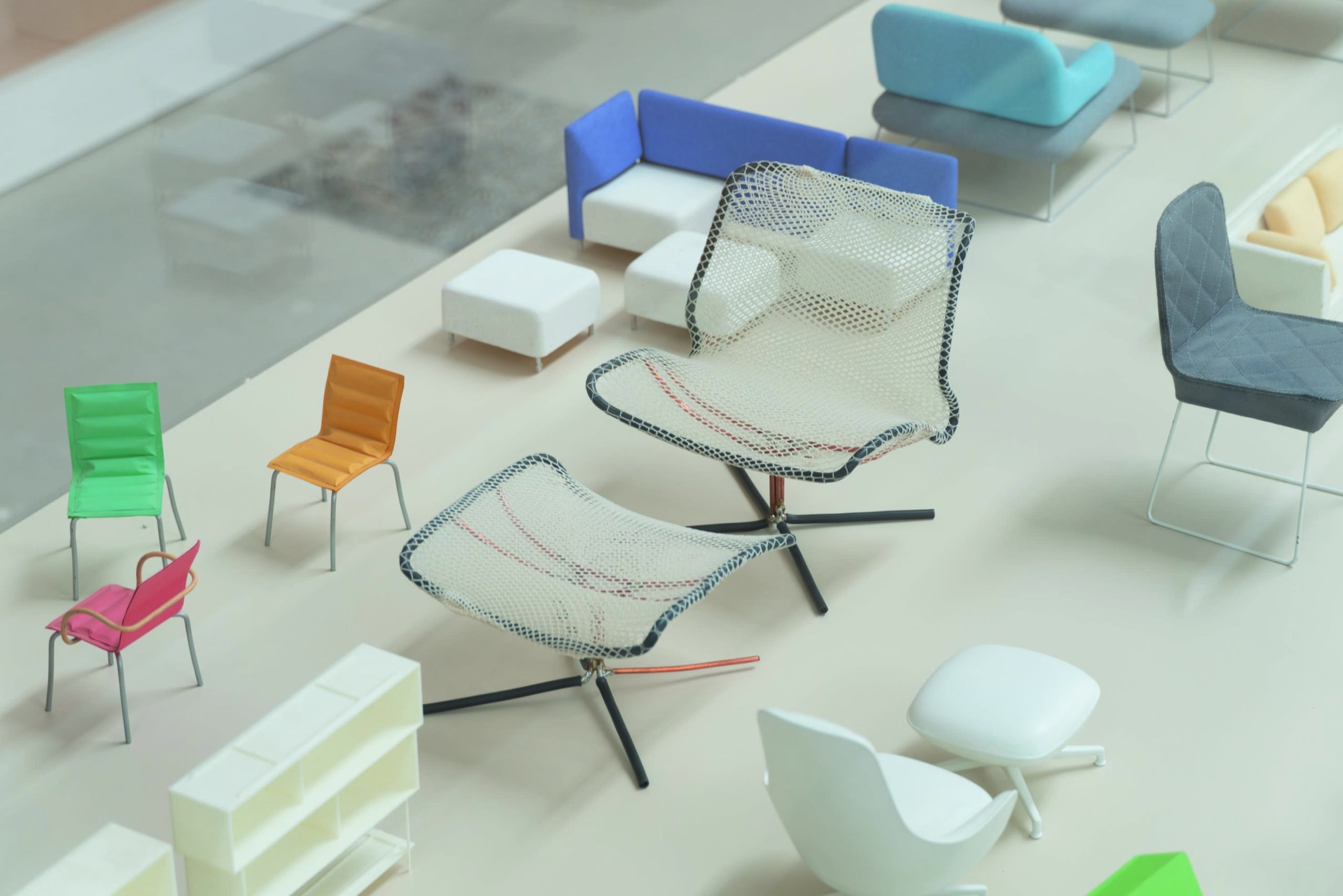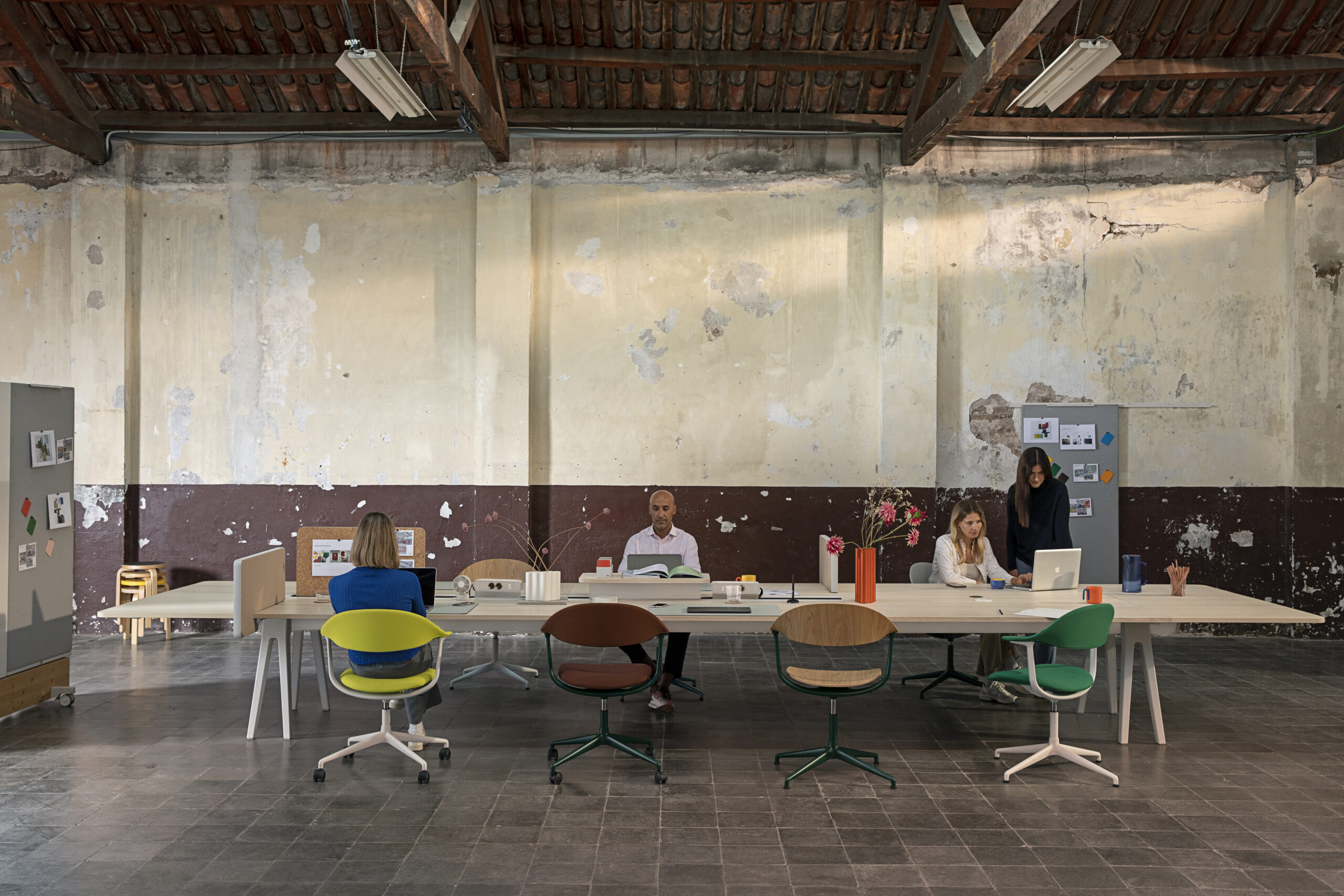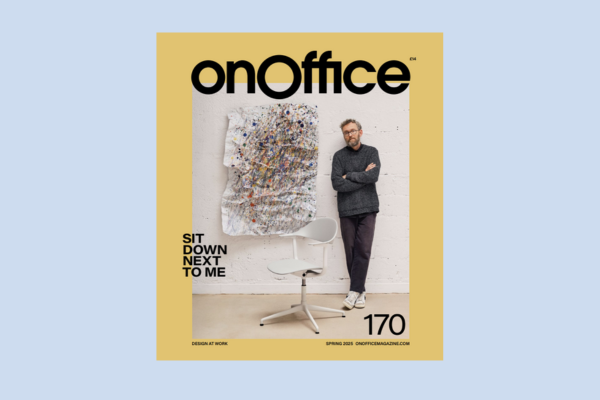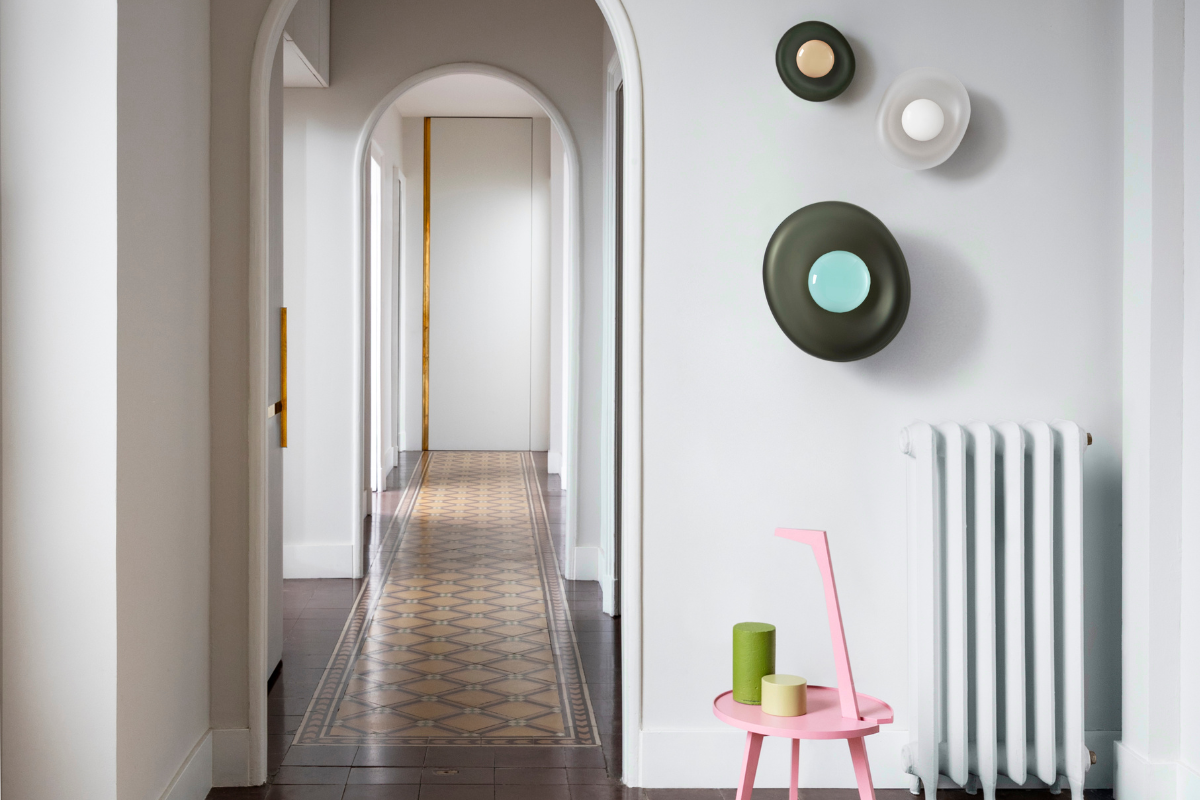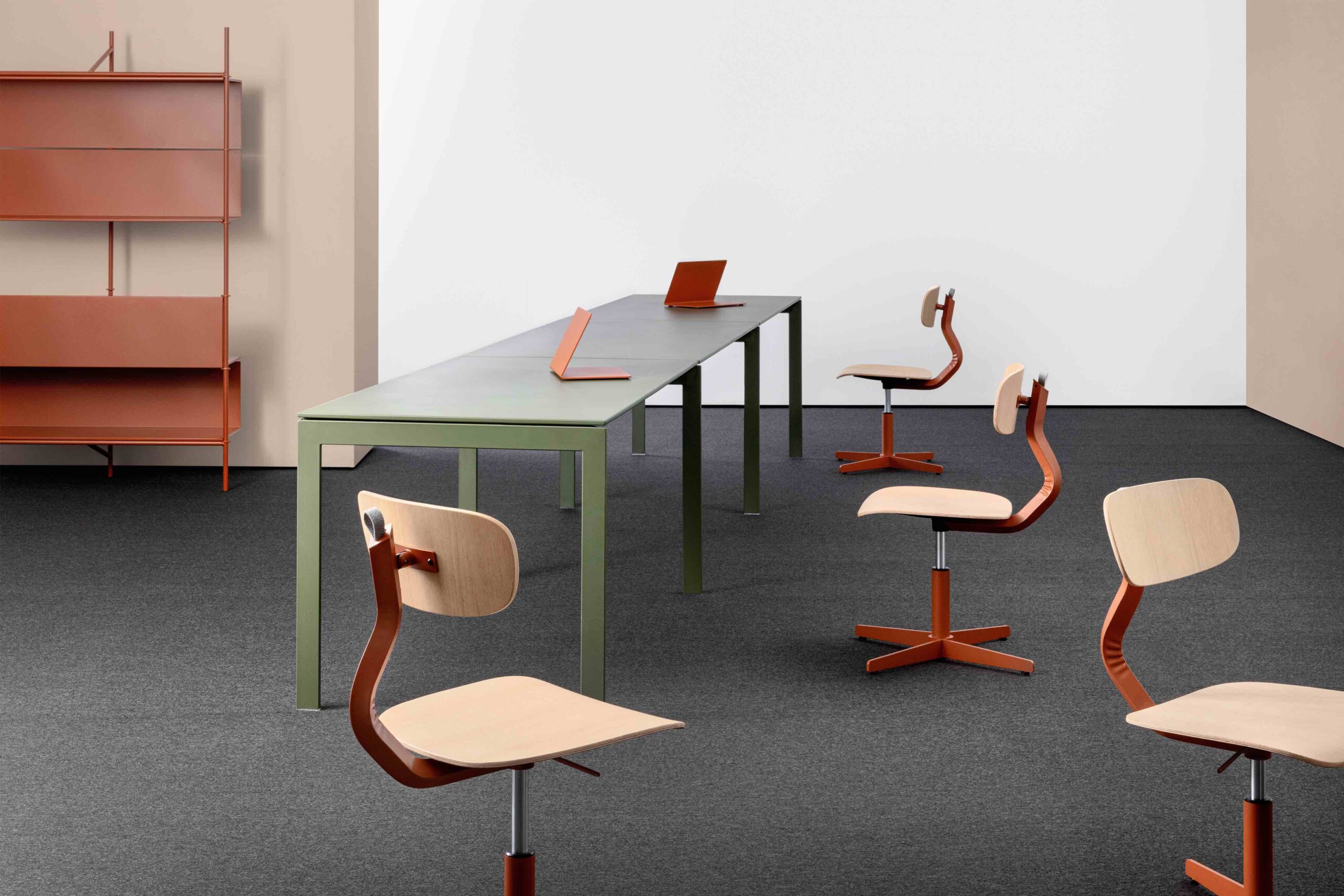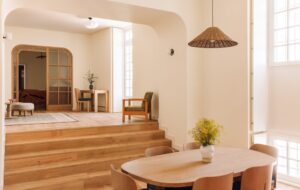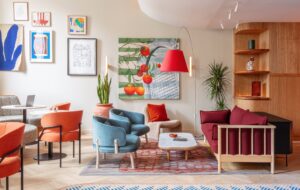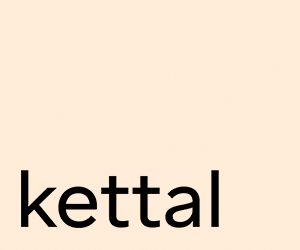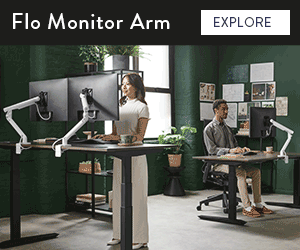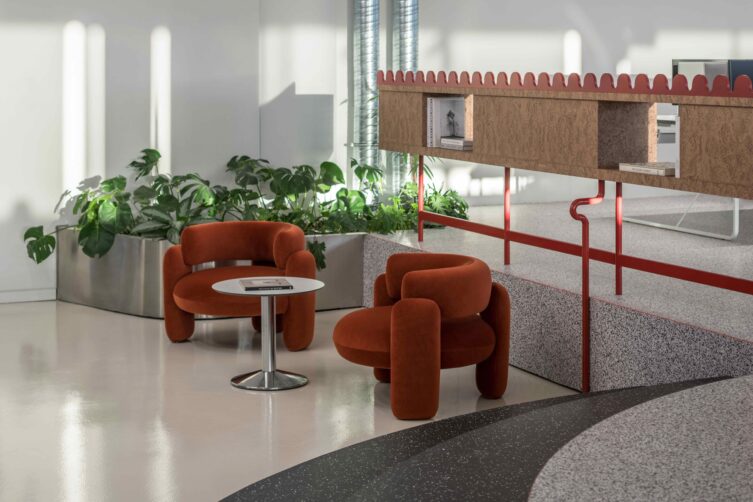
Circular Principles: Architecture firm KN Group_Design that Works applied a sustainable approach to its stylish Bauhaus-inspired interior for the Athens premises of a digital services platform
Closely adhering to the principles of the circular economy, when redesigning a new office in a 1970s building in Athens, its architects have assiduously and inventively reused and repurposed many of its existing features. The practice in question, KN Group_Design that Works, also conscientiously sourced a wide range of environmentally friendly materials, including paints and flooring, throughout.
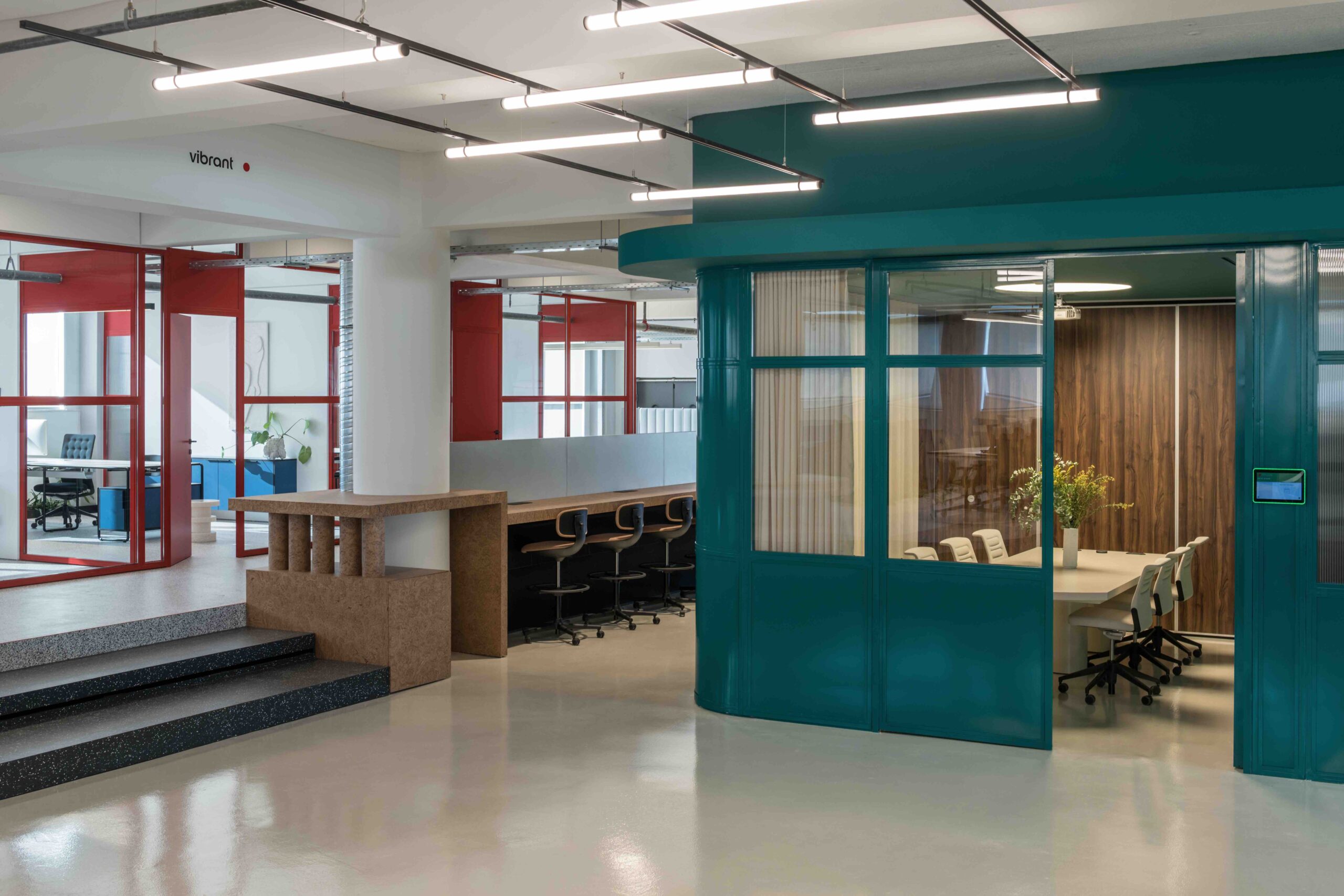
The new office is the premises of Edenred, a leading digital platform for services and payments. The project also involved renovating the building to make it far more energy-efficient, says Dimitris Kollaros, its lead architect: “The exterior has been fitted with insulating cladding, while all windows were replaced with more energy-efficient ones.”
The building has a modernist aesthetic and KN Group, as the practice is informally known, has paid homage to its pedigree, retaining its open-plan interior punctuated by large columns. Yet the architects have also made new, eye-catching interventions in the space, including glass-fronted structures with metal frames in punchy, high-gloss viridian or Chinese lacquer red.
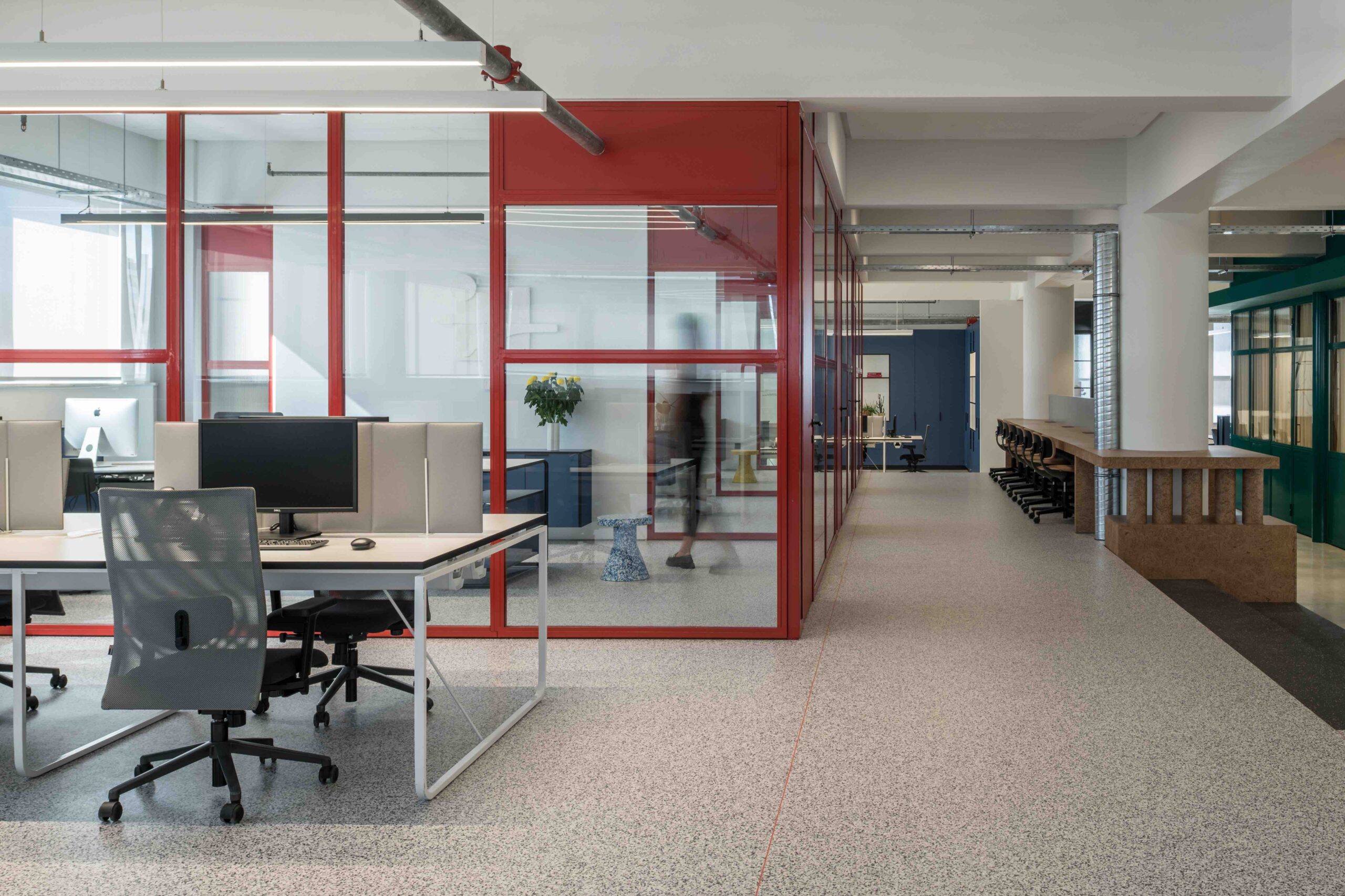
“Our main inspiration was the Bauhaus because of the similarities between the interior of its school in Dessau, Germany, designed by Walter Gropius, and that of the renovated former office,” says Kollaros. “We’ve referenced the Bauhaus with simple geometric shapes and colours. KN Group is a multidisciplinary architecture firm that creates functional, exciting commercial spaces for people to work in and interact,” he continues. “We support every step of the process, including design, construction, reconstruction and refurbishment. Since 2021, we’ve expanded our scope of work to include real-estate development.”
The building is in the neighbourhood of Moschato in south-west Athens, close to the port of Piraeus. “It’s a middle-class and working-class area and an industrial district manufacturing everything from footwear to building materials.” Called the IXI building, it was once occupied by a zip manufacturer, while for the past two decades the entire building had been used by EFKA, Greece’s largest social security organisation, to store its paper documentation.
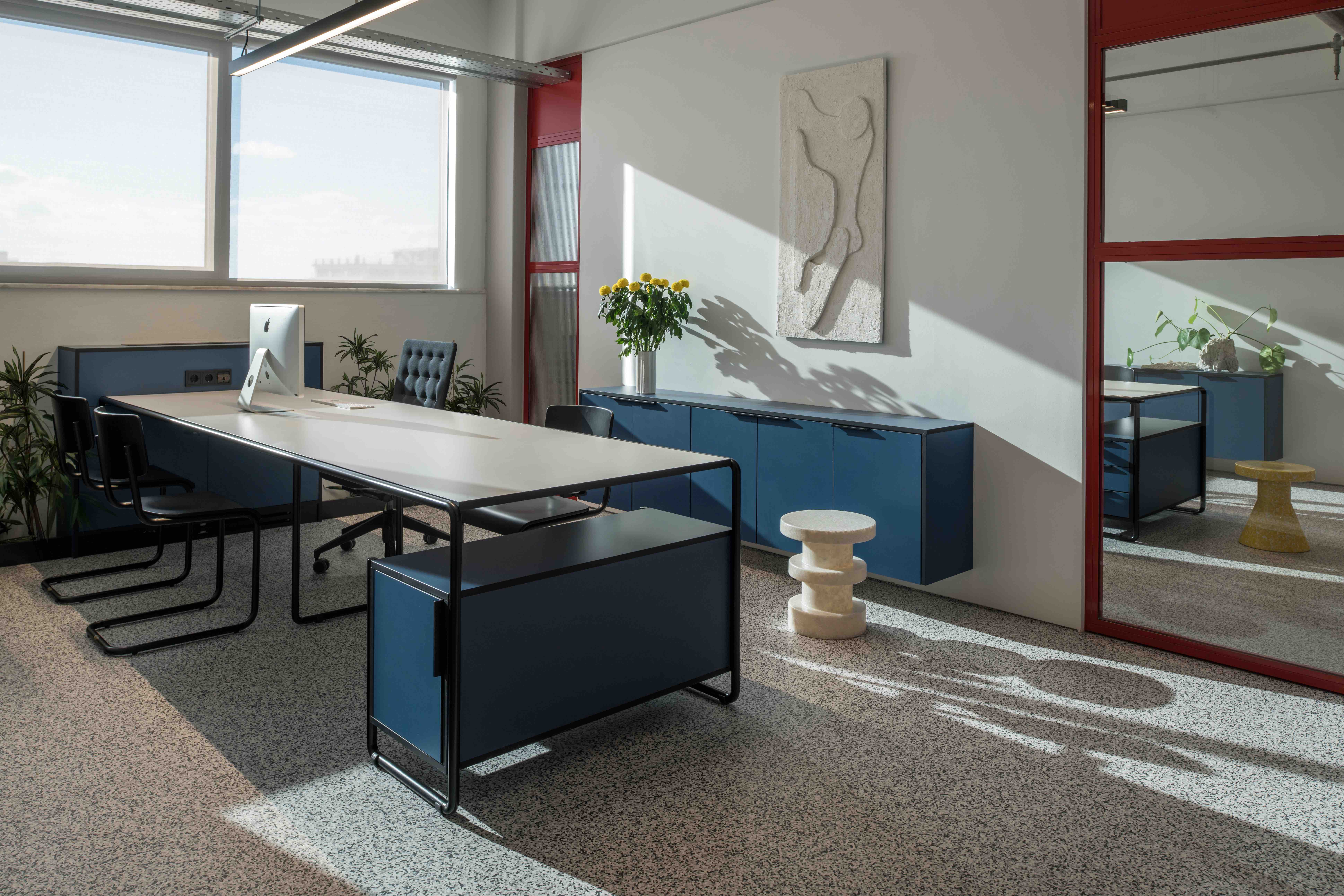
The new office has a kitchen, yoga room, breakout space, showers, lockers, compartmentalised recycling bins, an outdoor terrace, cycle racks and parking, and charging spaces for electric cars.
Although Kollaros says that modernist architecture was the chief influence, stylistically, behind the redesign, some of its colours (in ultra-pop shades) and materials appear to nod to 1980s postmodernism and even art deco (the latter, after all, influenced 1980s design collective Memphis). The grey and black mottled vinyl floor (from Tarkett) recalls the laminates favoured by Memphis’s ringleader Ettore Sottsass, while a long workbench or island – that seats 16 people – made of a wood veneer recalling the decorative pattern of maple burl has a distinctly deco-meets-1980s vibe.
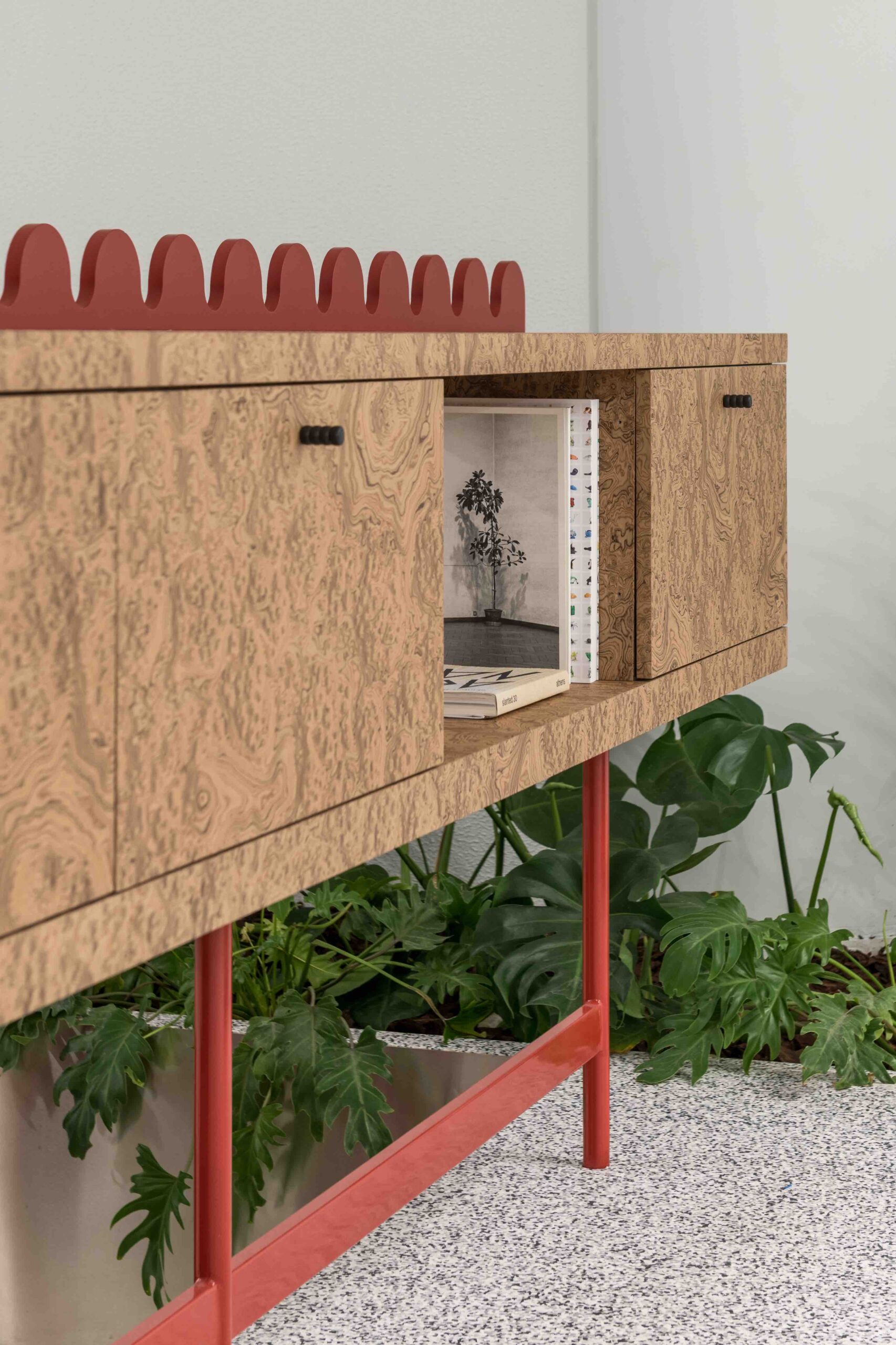
In fact, Kollaros concedes that there are some PoMo elements in the office, such as its island. In a similar vein is a whimsical, red wavy ridge – redolent of a cockscomb – that undulates along the top of a storage unit. And the exterior of the viridian structure is extravagantly curvilinear, adding a further flamboyant touch. Positioned in the centre of the office, this contains two meeting rooms, a phone booth and rooms housing computers and a printer.
The red-fronted room houses management offices, while red tubular metal handrails elsewhere reference the Bauhaus again – think Marcel Breuer furniture. The frosted windows in the partitioned rooms are mostly reused windows taken from the building’s exterior. Skirting the perimeter of the interior are ribbon windows in the classic modernist idiom. In theory this was a great asset. “The windows strengthened the design of the open-plan space by offering natural daylight and ventilation,” says Kollaros.
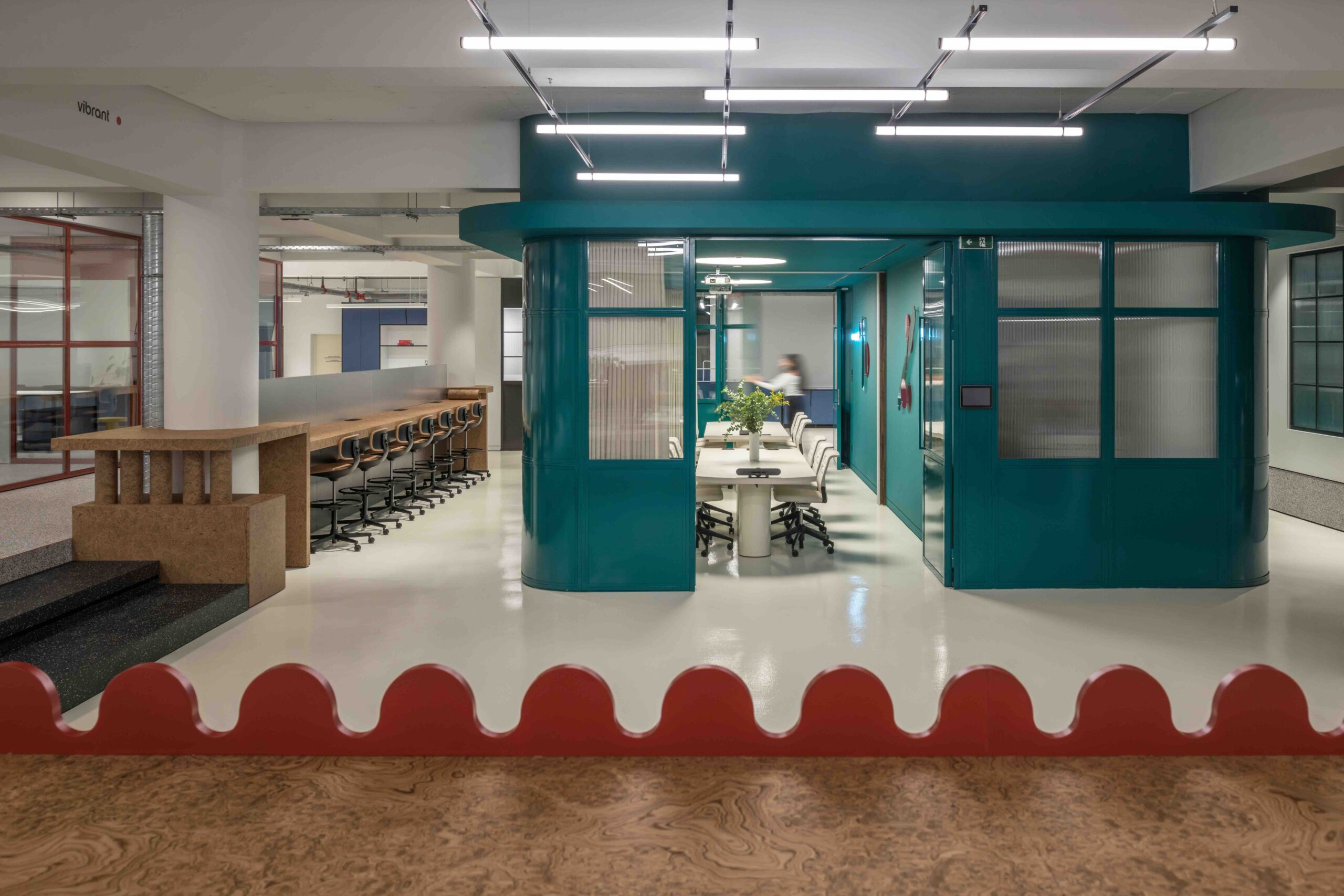
However, one challenge KN Group faced was to bring more daylight into the space since the original ribbon windows had been placed high on the walls, limiting how much light could enter the interior. “The reason for this is that the factory owners didn’t want people to see the machines inside,” explains Kollaros. “So one problem we faced was devising a way of giving employees more natural light and better views.”
The main solution KN Group came up with was a platform (covered with that PoMo mottled vinyl surface). Reached by steps, this plinth looks rather theatrical yet it’s mainly practical. The elevated area with desks and chairs now enables staff working there to enjoy better views and, since all windows can be opened, have direct access to natural ventilation.
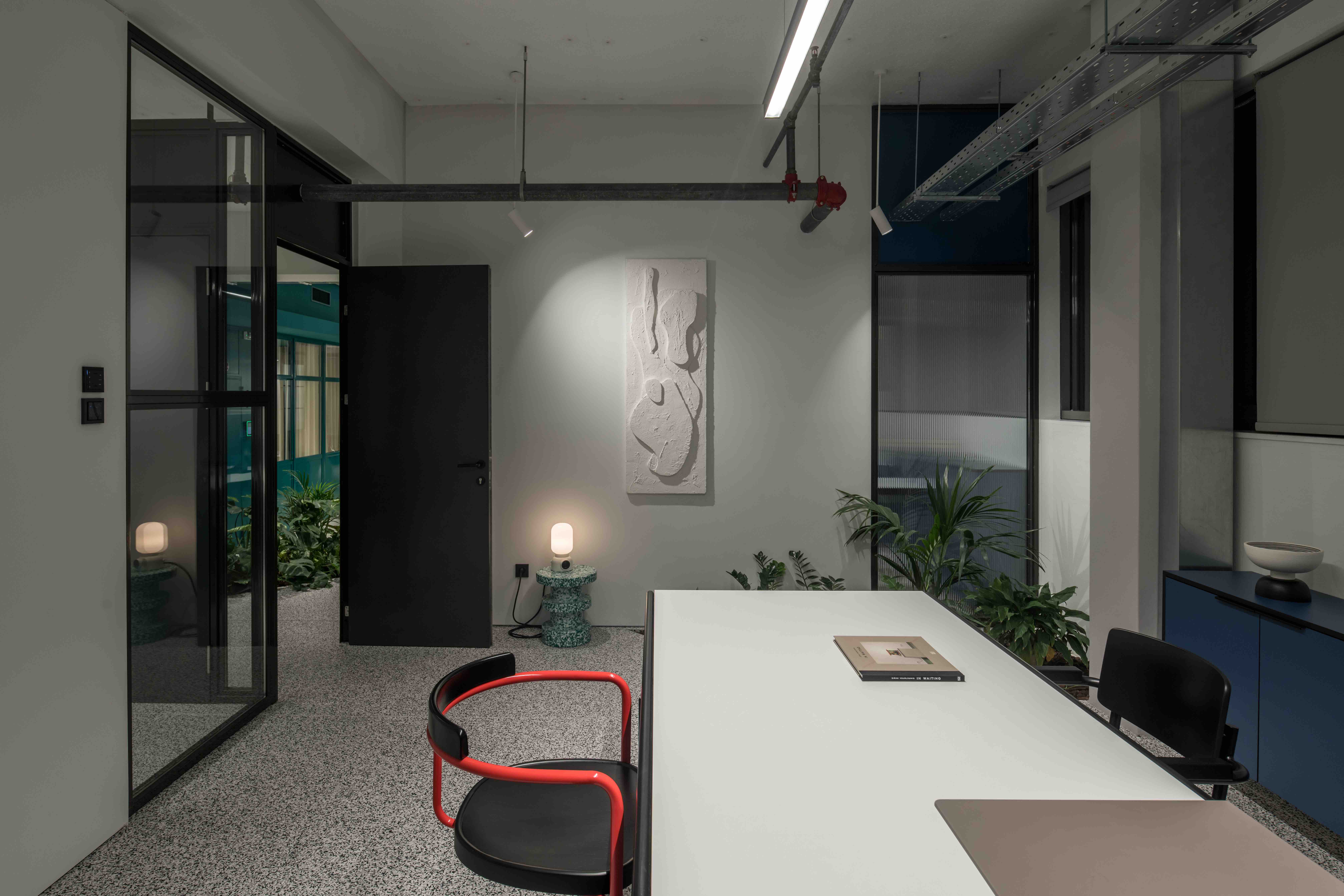
Naturally, this accords with the project’s environmentalist goals, evident too in its decision to install CFC-free air-conditioning units and an energy-efficient lighting system that automatically adjusts as light levels outside change, becoming dimmer when light outdoors is bright and sunny. Incidentally, KN Group, whose aim is for the building to attain LEED certification, for which the submission is in process, enlarged windows on the north-facing facade to bring more daylight in.
A tangible example of how central sustainability is to the project can be seen on the steps leading to the platform – one is made of an old, reclaimed railway sleeper found on a nearby railway track and no attempt has been made to disguise this.
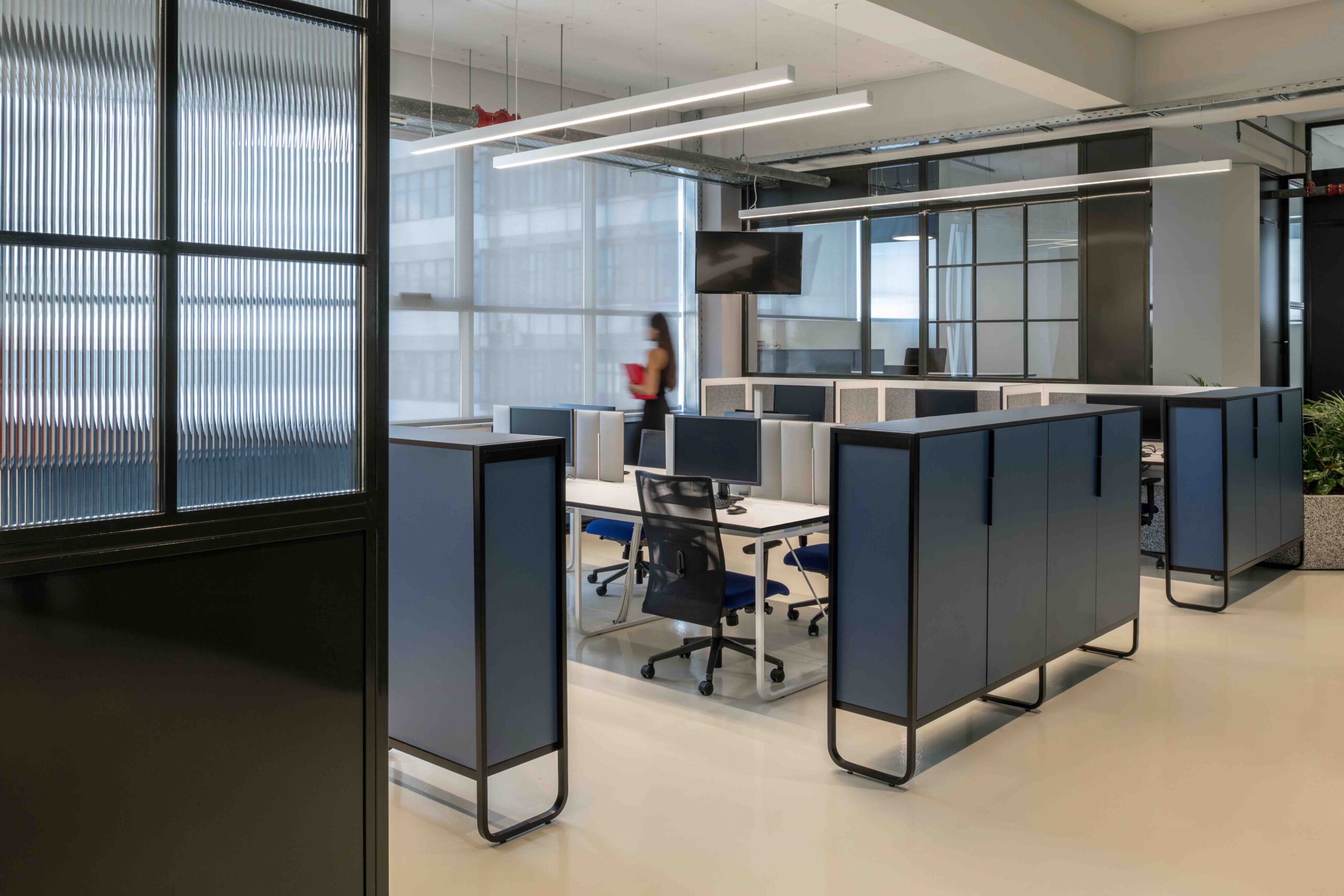
KN Group also saw to it that the furniture is sustainable. The practice created bespoke furniture made of FSC-certified wood, while upscale pieces include Normann Copenhagen stools fashioned from recycled industrial and domestic waste and chairs by Konstantin Grcic, which are 88% recyclable when disassembled.
Sustainability has been the key guiding principle underpinning the design of Edenred’s Athens office but KN Group has also had fun along the way, embracing daring colour and giving space to idiosyncratic, playful elements.
Images by Giorgos Sfakianakis
As featured in OnOffice 163, Summer 2023. Read a digital version of the issue for free.


